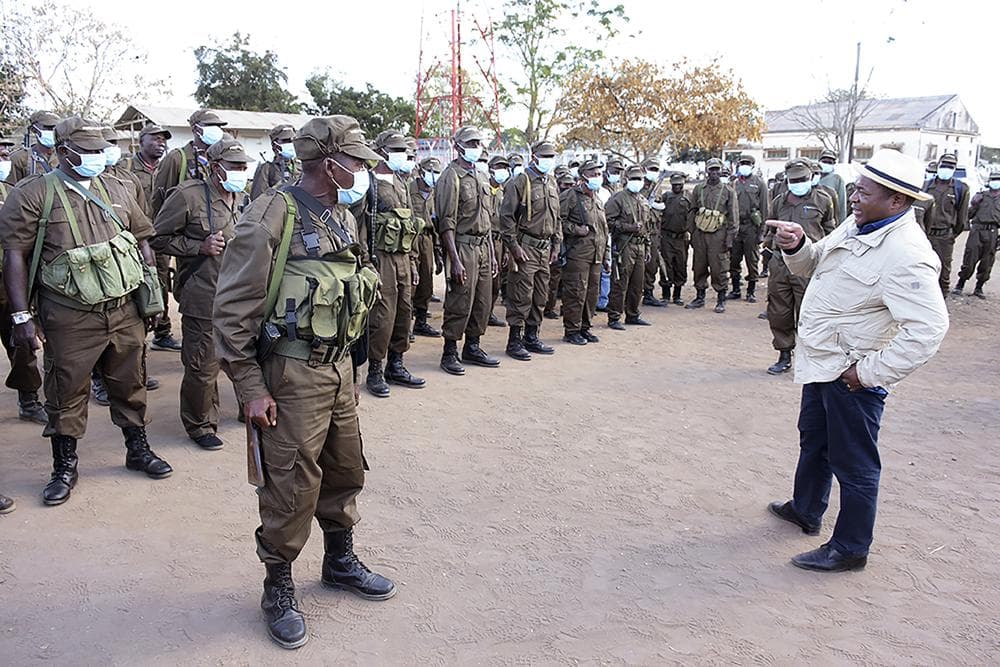YAOUNDÈ, Cameroon – An official of the South Africa Bishops’ Conference has expressed concern that a new military campaign to wipe out terrorists in northern Mozambique would end up harming vulnerable civilian populations.
Johan Viljoen, Director of the Denis Hurley Peace Institute (DHPI) sponsored by the bishops, told Crux that the operation in Mozambique could lead to innocent deaths, given that “the Mozambican armed forces have a long track record of committing atrocities against civilians.”
Viljoen suggested that the presence of troops in northern Mozambique may be less to fight terrorists, but rather to protect the interests of multilateral corporations.
The Armed Forces for the Defense of Mozambique (FADM) have launched what it calls “Operation Vulcão IV” meant to intensify the fight against terrorism in the north of the Messalo river, in Muidumbe district, and to the west of the administrative post of Chai, in Macomia district, Cabo Delgado province.
In its new effort, Mozambique enjoys the support of the Defense Forces of Rwanda and of the Military Mission of the Southern African Development Community (SADC).
Following are excerpts of Crux’s conversation with Viljoen.
Crux: Why are you apprehensive of this military operation?
Viljoen: The Mozambican armed forces have a long track record of committing atrocities against civilians. This was extensively documented in an Amnesty International report two years ago. There is no indication of them having cleaned up their act since then. Should they go house to house looking for suspected insurgents, they could end up taking away especially young men for ‘interrogation’ or torture.
Are there historical parallels to justify such fears and if so, how serious are they?
There was an incident almost two years ago where a video went viral of Mozambican soldiers shooting dead a naked woman in a village. The Amnesty International report referred to above is filled with atrocities committed by armed forces. There are journalists who were apprehended by the military three or four years ago who haven’t been seen or heard of since.
Give us a general idea of the security situation in Cabo Delgado today and across Mozambique.
The insurgency continues. Insurgents have broken up into smaller groups, and are continuing with attacks and beheadings, especially in the Muidumbe and Macomia districts. Attacks are also spreading to the south and west of Cabo Delgado.
It would appear as if the SADC and Rwandan forces are there simply to guard the mining company and multinational corporation interests, not to protect local communities. In November I drove from Pemba to Nampula – a distance of about 400 km through areas where there had been recent attacks (the Chiure district) – yet the whole way we never passed a military roadblock or saw a single soldier.
With villagers feeling completely abandoned, we are now seeing the resurgence of “Napharamas”. These are local young men who receive vaccinations from traditional healers, which they believe makes them immune to bullets. They have had several successes in driving away insurgents, especially in the districts of Balama and Namuno.
You have probably watched a video in which soldiers allegedly burned human bodies in the Cabo Delgado region. What struck you when that video surfaced?
The issue is creating a lot of controversy in South Africa, because two of the soldiers on the video are South Africans – the South Africa flag is clearly visible on the shoulders of their uniforms.
Since the SADC deployment, we have been fed on a diet of eulogies and praise by SA and SADC commanders, telling us how they have liberated communities and restored peace to the country, but in Mozambique they are seen quite differently. They are restricted to certain areas. There are the same allegations emerging as in Kivu North in the Democratic Republic of Congo (where South African soldiers are part of the UN peacekeeping force) – that South African soldiers are soliciting sex from teenage girls, that they smuggle precious stones, that many of them are drunk a lot of the time.
This video vindicates the perception of Mozambicans on the ground that the troops are cruel and undisciplined. It also underlines the repeated statements by the Bishops of the Mozambique Episcopal Conference that a military solution is not a solution, that violence begets violence, and that dialogue and negotiations are the only way forward.
How comforting for you is the decision by the SADC to launch an investigation into this incident?
Not very. It is a hallmark of the South African government that nobody accepts responsibility for anything, and this time around the Minister of Defense didn’t disappoint. She responded immediately by saying that the soldiers were not under the command of the South African Army, but under the command of SAMIM (the SADC forces), and that she couldn’t do anything.
Opposition parties are saying that, at the very least, the soldiers involved should be identified and dismissed from the military. Let’s give SADC the benefit of the doubt, and see what their investigation comes up with. Hopefully it will not be an attempt to whitewash the SADC forces and sweep the matter under the carpet. And if officers of higher ranks are involved, they should also be exposed and brought to justice.












